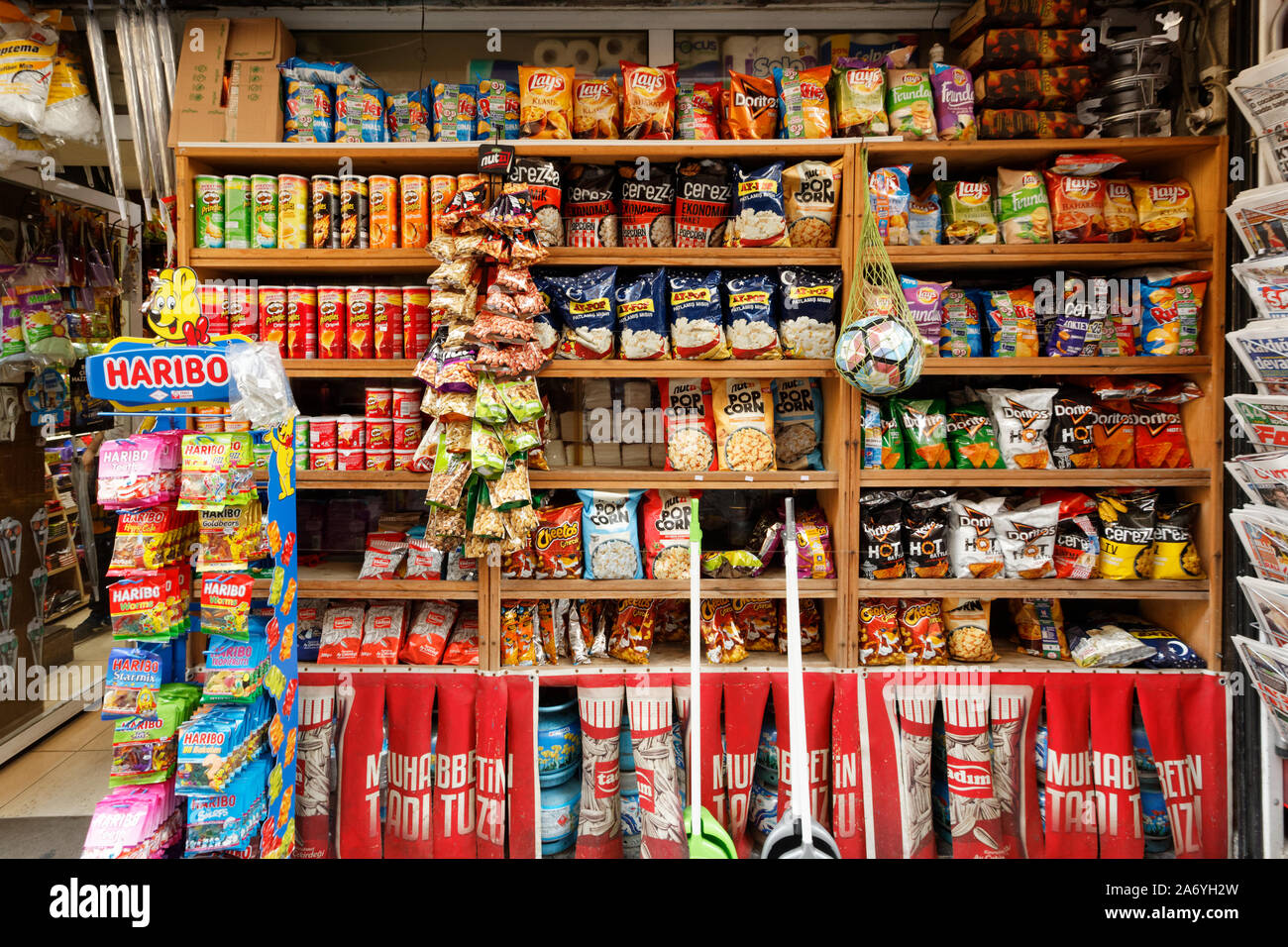Goods Unite Us - Connect Your Spending To Your Values
Have you ever wondered where your money really goes when you buy something, or if the companies you support share what you care about? It's a pretty common thought, actually. Most folks want to feel good about their purchases, knowing their hard-earned cash aligns with their personal beliefs and what they stand for in the wider world.
It turns out, quite a lot of our money, maybe even more than we realize, makes its way to political causes through the things we buy every day. We're talking about businesses, big and small, that make contributions to politicians and political action committees, often without us even knowing. It's a bit of a hidden stream of money, so to speak, and it’s something many people want to understand better, like your typical consumer looking for more transparency.
This is where a service called "goods unite us" steps in, offering a way to shed some light on those connections. They've put in a truly significant amount of time, a whole lot of hours, looking into the political money given by businesses in federal elections. Their aim is to help you see those links, allowing you to make choices that feel right for you, in a way that gives you more control over your consumer power.
Table of Contents
- What is "goods unite us" really about?
- How does "goods unite us" uncover spending habits?
- Why does "goods unite us" matter for your wallet?
- The "goods unite us" golden microphone program explained
- Can "goods unite us" help you shop differently?
- Finding "goods unite us" friendly places
- The "goods unite us" community and tools
- Supporting "goods unite us" and its mission
What is "goods unite us" really about?
This whole idea, "goods unite us," comes from a pretty simple but strong desire: to help people understand where their money goes. You see, it's a bit startling to discover that people in America, without even meaning to, give away three times more money to politicians and political groups through their shopping than they do when they make a direct donation. That's a lot of unintended support, so, it really highlights a blind spot for many of us.
The main goal here is to give everyone the ability to easily find out about the political money given by thousands of brands and companies. It's about putting that knowledge right at your fingertips, so you can see the bigger picture of how your everyday purchases might be playing a part in the political scene. This sort of insight is, in some respects, quite empowering for the everyday shopper.
The "goods unite us" app, for instance, is built to be fair and balanced. It doesn't lean one way or the other politically. Instead, it simply tells you the facts about how corporations and different brands spend their money on politics. This neutral stance means you get clear information, allowing you to make your own judgments without feeling pushed in a particular direction, which is, you know, really helpful for making informed choices.
How does "goods unite us" uncover spending habits?
So, how does "goods unite us" actually get all this information? Well, they've got a system, you see. You can simply put in the name of a company or a brand, and they'll show you what they've learned about its political giving. This process involves a lot of digging into public records, to be honest, making sense of all the numbers and connections.
The app itself has a vast amount of information, covering all sorts of things you might buy or use. We're talking about clothing labels, things for your home, cars, places to eat, even colleges and sports teams. It's a truly wide collection of data, meaning you can check pretty much anything you can think of that you spend money on. This extensive coverage is, in a way, what makes the tool so useful for so many different people.
They even have a special "goods score" that helps people quickly grasp a company's political spending habits. This score is based on their own way of looking at the data, making it easier for you to get a quick sense of things without having to pour over pages of reports. It's a bit like a quick snapshot, giving you a general idea, and that, is that, pretty handy when you're trying to make a quick decision.
Why does "goods unite us" matter for your wallet?
Thinking about your wallet, and how you spend your money, "goods unite us" gives you a fresh perspective. When you know where a company stands politically, you can decide if you want your money to support those causes or not. It's about making sure your spending reflects your personal values, rather than accidentally funding things you might disagree with. This kind of awareness can, you know, really change how you approach shopping.
The company's core aim is to give people the tools to become more aware consumers and even investors. The idea is that if we all pay a little more attention to these details, we can collectively make a bigger difference. It's about using your purchasing power as a kind of voice, a way to show what matters to you. This approach, you know, basically turns everyday shopping into a form of quiet advocacy.
They also offer ways for you to actually tell brands how you feel about their political choices. Their tools allow you to reach out, to send a message directly to these companies. This means you're not just passively observing; you're actively engaging, letting your opinions be known. It's a pretty direct way to express yourself, and that, is that, really important for making your voice heard.
The "goods unite us" golden microphone program explained
Something exciting that "goods unite us" has rolled out is their new golden microphone endorsement program. This is for federal politicians, and it's a way to highlight those who align with certain principles that the "goods unite us" community values. The microphone is golden for a specific reason, you see, and it represents a politician who has met particular criteria related to their political actions and stance.
This program is a way for "goods unite us" to shine a light on individuals who they believe truly represent the interests of the people, especially when it comes to how money influences politics. It's a kind of seal of approval, indicating that a politician has taken steps that resonate with the mission of making political spending more transparent and accountable. It's, in a way, a recognition of their commitment to these ideas, which is, you know, quite a positive step.
The idea behind the golden microphone is to encourage more politicians to be open about their funding and to act in ways that serve the broader public rather than special interests. It's a push for greater honesty and responsibility in the political arena, using the platform of "goods unite us" to draw attention to those who are doing things right. This program, quite frankly, offers a clear signal for voters who care about these issues.
Can "goods unite us" help you shop differently?
Absolutely, "goods unite us" can really change how you approach your shopping trips. Once you have the information about where companies send their political donations, you gain a new perspective on every purchase. It's not just about getting the item you need; it's also about making a choice that aligns with your beliefs, so, it really adds another layer to consumer decisions.
For example, a dedicated group of people who volunteer their time have put together a new shopping list, a "blue shopping list," which you can download. This list is based on the information gathered by "goods unite us" and helps you find products and services from companies that align with certain values. It's a handy guide for those who want to make more deliberate choices when they're out and about, a bit like a curated collection of options.
This means you can easily find alternatives to brands that might not fit with your views, or discover new companies that do. It's about empowering you to vote with your wallet, not just at the ballot box. This kind of tool is, in some respects, pretty revolutionary for everyday people who want to make a tangible difference through their spending habits.
Finding "goods unite us" friendly places
The reach of "goods unite us" extends beyond just big-name brands. They also connect with local businesses that share a similar spirit of transparency and community support. For instance, you can find "AB Parfait by Daybreak" at places like "Kind Goods" in different locations such as Fenton, Manchester, Soulard, and St. Louis. This shows how the network is growing, connecting like-minded businesses with aware consumers, which is, you know, quite neat.
"Kind Goods" dispensaries, for example, are places where you can experience quality and a good selection, along with a focus on teaching people about cannabis and putting customer care first. They make things easy with their services every day, showing a commitment to serving their community. This kind of business, basically, embodies the spirit of transparency and consumer focus that "goods unite us" champions.
You can also get special deals by shopping online through their app store, or by simply placing an order online after picking your favorite store location. Whether you're looking for medical or other products, they make it simple to get what you need. It's all about providing convenience while still holding onto those core values of quality and good service, which, you know, is really what people are looking for these days.
The "goods unite us" community and tools
Beyond just checking company spending, "goods unite us" is building a community of people who care about these issues. They offer an ad-free option within their app, which means you can browse information without distractions. They also feature reviews, allowing users to share their thoughts and experiences with different brands, creating a shared pool of knowledge, which, in a way, makes everyone smarter consumers.
The app lets you show your support for brands that align with your values, or express

Fast Moving Consumer Goods High Resolution Stock Photography and Images

What is PPE manufacturing, and why is it important? — Katana
:max_bytes(150000):strip_icc()/GettyImages-1141999659-a912f27b4bf64b53aaa8733e54f14d19.jpg)
Consumer Goods Sector Definition